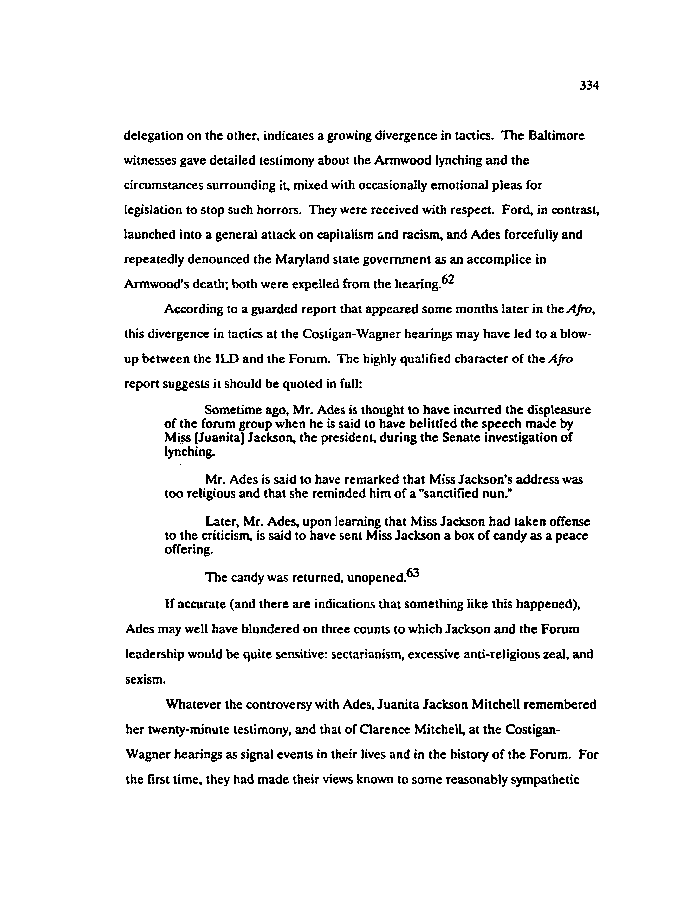|
334
delegation on the other, indicates a growing divergence in tactics. The Baltimore
witnesses gave detailed testimony about the Armwood lynching and the
circumstances surrounding it, mixed with occasionally emotional pleas for
legislation to stop such horrors. They were received with respect. Ford, in contrast,
launched into a general attack on capitalism and racism, and Ades forcefully and
repeatedly denounced the Maryland state government as an accomplice in
Armwood's death; both were expelled from the hearing."^
According to a guarded report that appeared some months later in the Afro,
this divergence in tactics at the Costigan-Wagner hearings may have led to a blow-
up between the ILD and the Forum. The highly qualified character of the Afro
report suggests it should be quoted in full:
Sometime ago, Mr. Ades is thought to have incurred the displeasure
of the forum group when he is said to have belittled the speech made by
Miss [Juanita] Jackson, the president, during the Senate investigation of
lynching.
Mr. Ades is said to have remarked that Miss Jackson's address was
too religious and that she reminded him of a "sanctified nun."
Later, Mr. Ades, upon learning that Miss Jackson had taken offense
to the criticism, is said to have sent Miss Jackson a box of candy as a peace
offering.
The candy was returned, unopened.
If accurate (and there are indications that something like this happened),
Ades may well have blundered on three counts to which Jackson and the Forum
leadership would be quite sensitive: sectarianism, excessive anti-religious zeal, and
sexism.
Whatever the controversy with Ades, Juanita Jackson Mitchell remembered
her twenty-minute testimony, and that of Clarence Mitchell, at the Costigan-
Wagner hearings as signal events in their lives and in the history of the Forum. For
the first time, they had made their views known to some reasonably sympathetic
|

